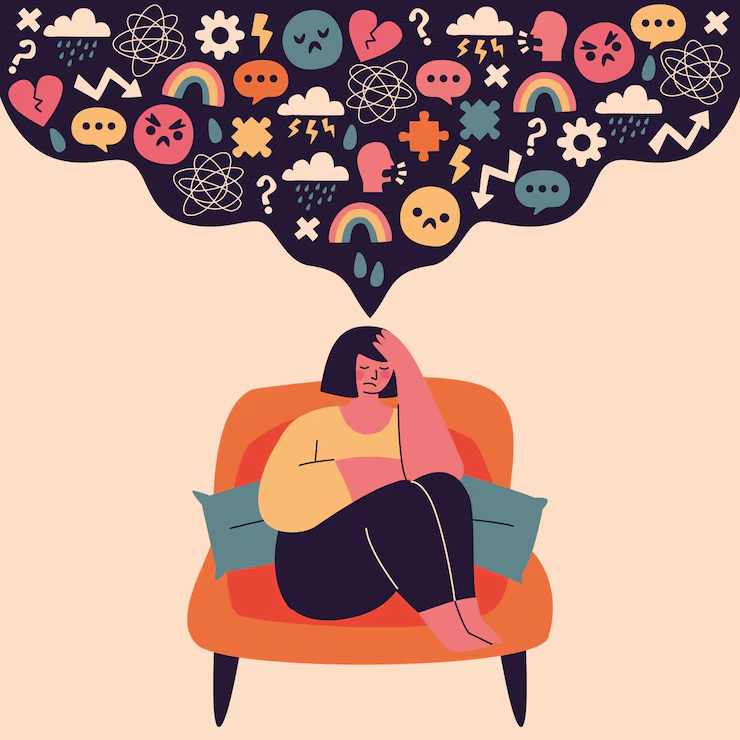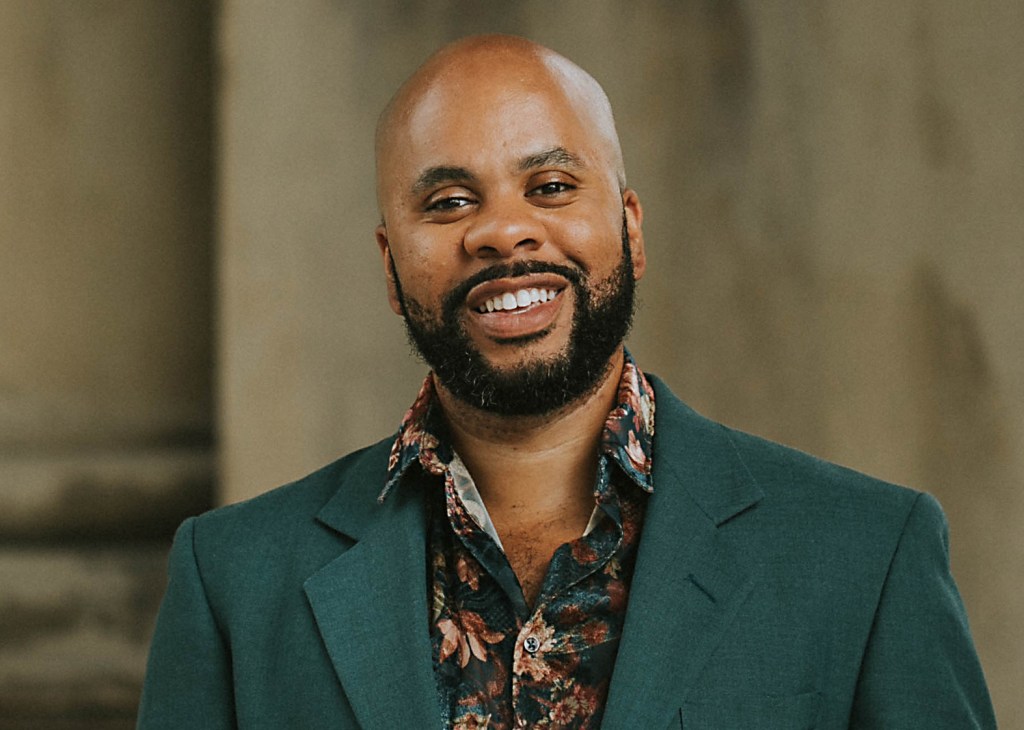Fola* (40) was diagnosed with bipolar disorder at the age of 19 after surviving an abuse-related mental breakdown. She shares her frustration with how mental illness has affected her relationships, quality of life and her ability to parent her children.
TW: Sexual abuse, domestic violence and self-harm.
As mentioned in Boluwatife

I have lived with bipolar disorder for 22 years, but I wasn’t always like this.
Growing up, I was a fun-loving kid who played with my siblings and stayed with my cousins during school breaks. But then my uncle started sexually abusing me, and my «regular» life ended.
The first time it happened, I was 10 years old. He lived with my parents for a few months and kept making me and my siblings touch him. Sometimes, he touched us. I didn’t think I could say anything, and it stopped when my family moved out of the area, so I pushed it to the back of my head.
Three years later, my parents separated, and I had to live with my grandmother. At this time, my uncle was a freshman. He also stayed at his grandmother’s house when he was not at school. I was in JSS 3. The abuse started again and went on and off for three years whenever he was home on holidays.
This time, it came with threats. He warned me not to tell anyone unless he kills me. I think my health problems started piling up from there. Whenever he was not there, I forgot that he tortured me. Then he would come back and start again. I now know from therapy that forgetting was my defense mechanism. I just locked the thoughts in my head.
At one point in SS 3, I heard him tell his girlfriend that he was going to «ruin Fola’s life», and I started to panic. My heart skipped a beat for days and I kept thinking about death. I was preparing for my WAEC exams, but I couldn’t concentrate. It was as if my entire bottle had reached the end.
I remember when I finally broke down. It was the day of my chemistry test for WAEC. I went into the lab, and my friends were letting me join them when I came out. The school secretary had to call my mother to let her know that I was behaving strangely. He took me home, and I got worse. I couldn’t bathe, eat or talk to anyone, and I was crying all the time.
My mother thought I had severe malaria that was affecting my brain and took me to the hospital. I was there for about three months and I honestly don’t remember much of what happened. There was a time when I passed out, and the doctors had to wake me up. When I started trying to cut myself and pull injections from the nurses, the doctor took me to a psychiatric hospital.
It took two years of frequent hospital visits and visits to a psychiatric hospital to get officially diagnosed and diagnosed with bipolar disorder in 2001. The doctor wouldn’t admit me to the hospital. , and it took so long before the official review because I was so scared, and it took me a while to remember the specifics.
I also told my mother about what my uncle did. The family was concerned, and the matter ended by pleading and confirming that it would not happen again.
But the damage was already done. I was 19 years old, and suddenly, I was faced with the reality that I would have to take medication for the rest of my life.
It took me a while to adapt. I took my medication religiously for a while, but then I got tired and refused to take it again. I relapsed three times before I believed I couldn’t run away from medication.
I nearly trashed my family home during one relapse. I stopped my drugs and had a huge burst of energy. So, I decided to clean the house and reorganize it. It wasn’t even dirty, but I wasn’t thinking clearly. I called a friend and told him to pack everything, even the important things. Luckily, mom came back before she could take them.
Living with bipolar disorder is one thing. Managing relationships is another thing entirely. At different times, men came to me and wanted to go out with me, but as soon as I told them about my illness, they rejected me. It didn’t matter if I was on medication, and I was always upfront about my condition. They just disappeared.
Even when I decided to focus on the church and let the relationship rest, the disease still wouldn’t let me. I joined the choir but I could not meet the morning hours and vigilance required as a church minister.
One of the side effects of my medication is excessive sleepiness. The average person sleeps eight hours, but I sleep 15-16 hours a day. That also affected my university studies, but luckily I still graduated.
I met my husband, Robert*, right after my NYSC service year in 2012. We met over a cake, and he asked for my number. I remember he had one little flashlight wire, and I thought, «See that wire he’s using to light the woman?»
However, we talked, and I immediately told him about my situation. He didn’t care. He even said that uncle is his enemy, and he has never seen him and will not talk to him.
Robert and I got married less than a year after dating. My mother was happy that I found a man willing to marry my condition because not many men would want someone with bipolar disorder in their home.
The first days of our marriage were not so bad. Robert understood that my medication made me tired and sleepy all the time, so he helped me with the housework. I wasn’t working either, so he took care of the bills. I tried to work in a salon, but the stress of waiting for a long time got to me, and I had to stop.
Then, Robert started hitting me. It wasn’t normal, and it happened when he was frustrated by not being able to do certain things. He would complain about that, I would try to defend myself, and he would slap me back. We moved to a different place after marriage, and none of my family was around.
Every time he hit me, he would quickly call my parents to tell them what I had done wrong—I think he was trying to talk before I did. He never told them about the beating, and neither did I.
I had my first child in 2013. I now have three children, and every time I get pregnant, the doctors change my medication to prevent birth defects and birth defects. blood loss should not affect my mental health. .
I went from taking four tablets a day to eight, and my energy level went down when I gave birth. I can’t concentrate well and I can’t do as many things as I used to. As of 2015, I was still able to go to the market, cook in bulk and keep soup in the fridge. Now, I can only make soup three times a month, and even that is with sheer determination.
I had my last child in 2022, and my doctor told me not to have another one if I didn’t want to be completely helpless.
My husband knows how much childbirth has affected me, but that doesn’t change the fact that most of our issues are caused by my condition. I try everything. I have a restaurant, which I started in 2023, and I try to go in the evening when I feel well enough to do so. But then my husband comes home from work and wants me to cook fresh food, but I can’t. It really affects our relationship.
To be honest, he tries his best. When she’s happy, she helps me and tries to make sure I’m okay. She cooks, helps with the children’s school runs and takes care of us. But when he is tired, he takes things to extremes. He says things like, «What kind of woman did I marry?» and he accuses me of faking my weakness. Do you think I’m happy that I can’t be a wife and mother to my children? I can’t even actively participate with my children.
Sometimes, I cry all day asking God. So, why did this have to happen to me? But now I console myself that I will not live forever. I will be gone one day, and the drugs will wear off.
I think Robert’s comments are correct. I know my condition is not easy to manage, but this is a lifelong thing, and I wish he would be more understanding. I know he has a lot of female friends that he goes to meet whenever he leaves home angry, but I don’t care. If I don’t give him the happiness he wants, maybe he should find it somewhere else. There is nothing I can do. I can’t stop my medication to get more energy because it would make my condition worse. So, what’s the point?
I have tried to talk to him as many times as I feel. Sometimes, he listens. Sometimes, it’s like, «Abeg, I’m tired of all these stories.» I’m glad you stopped hitting me. I finally told my mom last year, and she threatened to arrest him. He hasn’t hit me since.
Through it all, I’m glad I have my family as a support system. Most days, I doubt myself and worry about things I can’t do. But my mother calls me every week to talk to me and encourage me. He was there when I started to feel down and he always reminds me how far I have come. I survived, I have children, and my condition is manageable even with the side effects of the medication. I thank God for the small victories.
*Names have been changed for the sake of anonymity.
#Husband #Doesnt #Understand #Mental #Health #Issues

